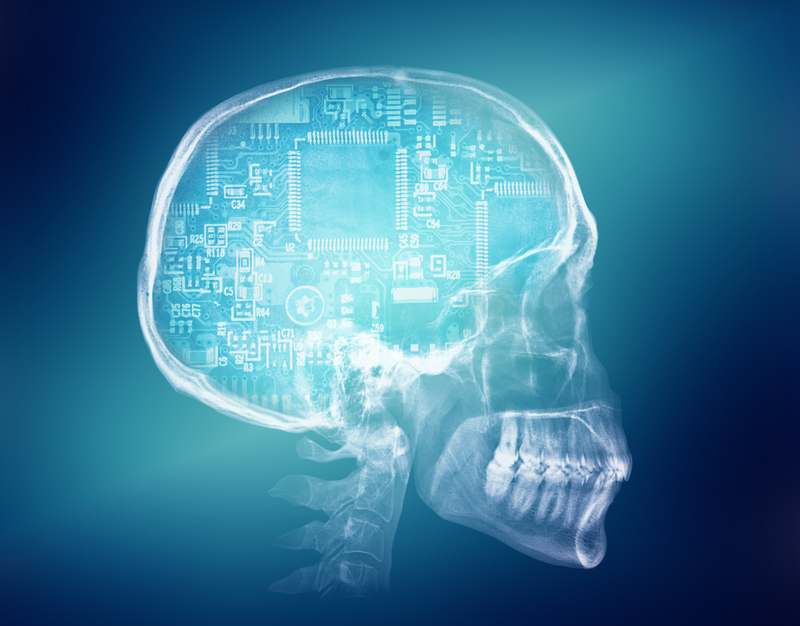Sleep apnea is a common sleep disorder that affects millions of people worldwide. It is characterized by pauses in breathing or shallow breaths during sleep, leading to poor sleep quality and various health problems. Early detection of sleep apnea is crucial for effective treatment and prevention of potential complications. Thanks to advancements in technology, researchers are now using AI and other innovative methods to accurately detect sleep apnea.
The Role of Artificial Intelligence
Artificial Intelligence (AI) has revolutionized the healthcare industry, and sleep apnea detection is no exception. By analyzing large amounts of data, AI algorithms can identify patterns and indicators of sleep apnea with incredible accuracy. AI algorithms can process data from various sources, such as wearable devices, home sleep tests, and medical records, to provide reliable predictions and diagnoses.
One of the key advantages of using AI in sleep apnea detection is its ability to continuously monitor individuals. Traditionally, patients had to undergo sleep studies in a clinical setting, which can be inconvenient and costly. With AI-powered wearable devices, individuals can Monitor their sleep patterns and receive real-time feedback, enabling early detection and intervention.

Credit: www.sleepfoundation.org
Innovative Technologies in Sleep Apnea Detection
In addition to AI, several other innovative technologies are being employed in sleep apnea detection:
- Smartphone Apps: Mobile applications have been developed that use built-in sensors to monitor sleep quality and detect sleep apnea symptoms. These apps can analyze factors like snoring, movement, and oxygen levels to provide users with valuable insights.
- Smart Mattresses: Advanced mattresses equipped with pressure sensors can detect breathing patterns and identify sleep disruptions caused by sleep apnea. These mattresses collect data throughout the night and provide detailed reports to individuals.
- Machine Learning: By utilizing machine learning algorithms, researchers can identify specific sleep apnea patterns and develop more targeted diagnostic tools. This approach improves the accuracy and efficiency of sleep apnea detection.
- Internet of Things (IoT): IoT devices, such as smartwatches and home automation systems, can collect data on sleep patterns and send alerts to individuals or their healthcare providers when indicators of sleep apnea are detected.

Credit: sleepcoaching.com
Benefits of Early Sleep Apnea Detection
The early detection of sleep apnea brings several advantages:
- Improved Sleep Quality: By identifying sleep apnea early on, individuals can receive appropriate treatment and experience improved sleep quality, leading to better overall health and well-being.
- Reduced Health Risks: Sleep apnea has been linked to various health conditions, including hypertension, heart disease, and diabetes. Early detection and treatment can help mitigate these risks.
- Cost-effective: Early detection can prevent complications that may require expensive medical interventions in the future.
- Customized Treatments: With accurate sleep apnea diagnoses, healthcare professionals can tailor treatment plans to meet individuals’ specific needs, ensuring better outcomes.
Frequently Asked Questions For Researchers Harness Ai And Other Innovations To Detect Sleep Apnea
How Is Ai Used To Detect Sleep Apnea?
AI algorithms analyze sleep patterns and biological signals collected from wearable devices or sensors to accurately detect sleep apnea.
What Are The Benefits Of Harnessing Ai For Sleep Apnea Detection?
Harnessing AI enables early detection, personalized treatment plans, remote monitoring, and improved patient outcomes for sleep apnea.
Can Ai Accurately Diagnose Sleep Apnea Without A Sleep Study?
AI algorithms can analyze sleep data collected from wearable devices and sensors to provide a preliminary assessment, but a sleep study is still required for an official diagnosis.
How Does Ai-powered Sleep Monitoring Benefit Individuals With Sleep Apnea?
AI-powered sleep monitoring provides real-time feedback, tracks sleep patterns, identifies apnea events, and helps individuals make informed decisions about their treatment options.
Conclusion
The utilization of AI and other innovative technologies in sleep apnea detection has revolutionized the way we approach this common sleep disorder. These advancements enable early detection, personalized treatment, and improved health outcomes. Continued research and development in this field have the potential to significantly improve the quality of life for individuals living with sleep apnea.
Leave a Reply